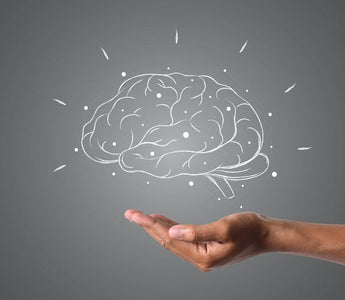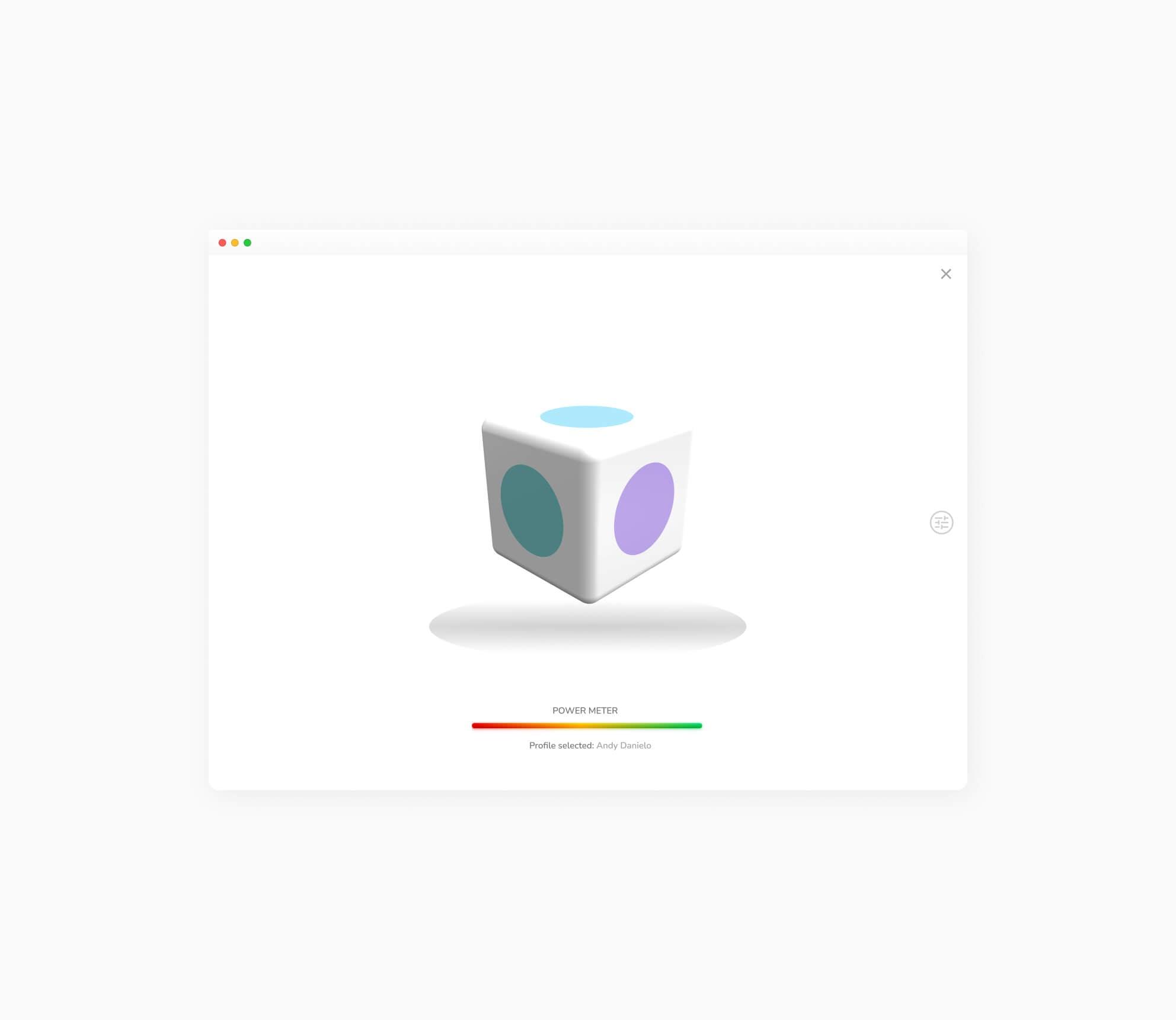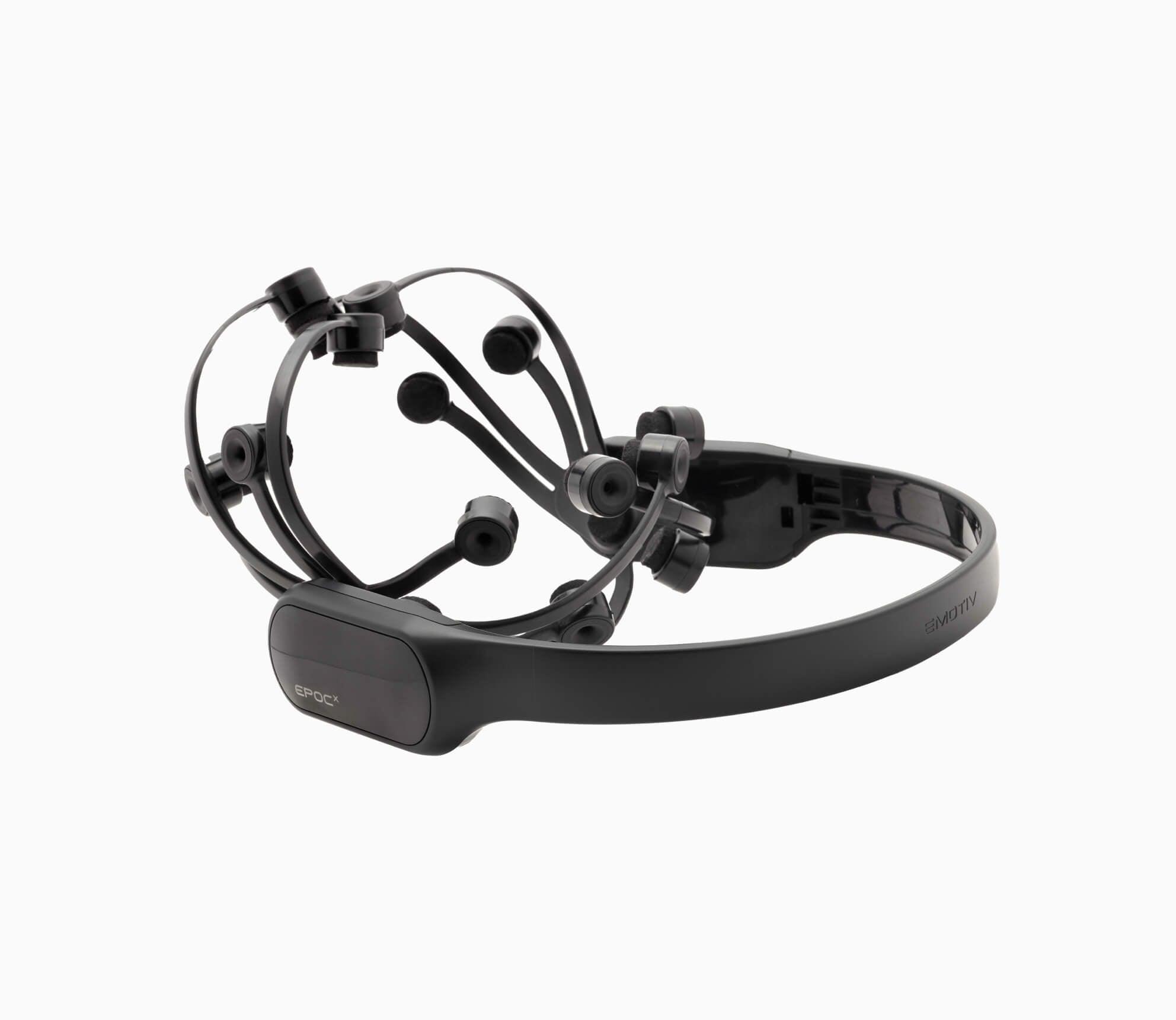Our brains are the most complex part of our bodies, controlling everything from intelligence and cognition to behavior management. Although it's just three pounds in weight, the brain is the control tower for the rest of the body.
It's so essential for the body's functioning that it begins maturing before birth. Interestingly, the brain does not mature at the same rate in everyone. However, that shouldn't be quite surprising.
Our bodies grow differently. From emotional maturity to puberty, we reach different stages at different rates. So, it only makes sense for our brains to be different too. That's bound to make you curious about the functioning of your brain and how it may differ from someone else's.
Here's an overview of why it's important to know your brain and how this knowledge can empower you.
Why Learn About Your Brain
Our nervous system consists of a number of cells, called neurons, which make up the primary functional units of the brain. All memories, feelings, sensations, and movements in the body result from the passage of signals through neurons of different functions, shapes, and sizes.
On average, a human brain comprises 80 to 90 billion neurons. Besides the neurons, the brain also contains glia - specialized cells that protect the neurons.

Scientists have learned much about the brain in the past few centuries, including many of its structures and functions. These discoveries have shown that the brain's basic anatomy is similar to everyone.
However, the pattern of neuronal connection and interactions vary from one person to another. That's where the variation in human behavior comes from. Our brain circuits remodel with every new experience, making us the people we are.
How do we still remember an incident from twenty years ago? How do people learn to do ballet or juggle a dozen balls at once? All of these amazing experiences can be attributed to the brain.
However, the brain is so complex that it's hard to understand it fully. Researchers are still trying to understand different parts of the brain and how they play a role in emotions, memory, intellect, and other perceptions.
To understand the brain truly, we need to identify its component cells and characterize them based on their connectivity and function. In fact, many new treatments are derived from this fundamental understanding of the way neurons interact in the body.
One of the earliest methods of studying the brain was the Electroencephalogram (EEG). In 1929, Hans Berger placed sensors on the scalp to record the electrical potentials generated by neurons. This provided the first insight into brain activity. Though this early EEG was rudimentary analogue recordings, the technology has progressed to allow digitization of brain wave data and is still commonly used in a wide variety of scenarios. Today, cognitive psychology and brain science are more context-based. We now have tools that allow us to study datasets to understand brain functioning with respect to certain conditions, environments, triggers, and activities - something that wasn't possible previously.
The contextualization of brain studies makes it possible for us to understand ourselves and study how our brain takes part in our interaction with our surroundings.
Considering this, there are many reasons for you to learn about your brain.
Improve Learning Capabilities
Throughout the years, research surrounding the "learning" capability of the brain has helped educators curate a learning environment that's not only suitable for students but also facilitates effective learning.
However, this knowledge is not merely useful for teachers. You can also use it individually to improve your cognitive well-being and ultimately enhance your quality of life.
Let's take the example of learning new things to explain this in detail.
When you learn something new, many changes take place in your brain. Of them, the most prominent is the formation of new connections between neurons - a phenomenon called neuroplasticity.
If you keep practicing the same thing over and over again, these connections become stronger. As a result, the messages between neurons are transmitted quickly. How does that help you? It allows you to recall what you've learned in a much quicker and more efficient way.
How to Improve Your Cognition?
Suppose you're learning to sew. When you're a beginner, it will take your hours, if not days, to learn a certain type of stitch and perfect it. With practice, it will become second nature to you.
Interestingly, the opposite is also true. When you stop practicing, the connections will become weaker, and you won't be efficient at that task anymore.
A Frontiers article explains this by using the example of a trail in a forest that's filled with vegetation. The first time you walk through it, you will find it difficult to push the branches and vegetation out of your way.
But the more you pass through it, the more practical the path will become as you remove branches out of your way every time you pass. After a while, a time will come when you won't have to remove anything since the path is clear, allowing you to walk through with ease.

However, if you stop going through the trail for a few months or years, the vegetation grows back. If you were to go back to that trail, you'd have to start from square one.
However, it's important to note that some neural connections in the brain become so strong that they never disappear completely, even when not frequently in use.
By knowing this information about your brain, you can empower yourself to improve your learning capabilities. You now know that you need to practice a skill or new thing to perfect it.
Even better, if you test yourself, you're likely to recall the information you've learned. A study showed that when you perform exams or tests, you remember information more as compared to if you simply study. That is, attempting to retrieve information helps you remember it better than simply rehearsing it.
Suppose you're learning a new programming language. Surely, practicing it will help you learn quicker and better. But if you also do coding exercises online or work on a project where you actively recall the information, then you're more likely to retain that information you've learned.
Build Resilience
Understanding how your brain works will also help you build resilience. It's interesting to note that resilience isn't a trait that you're born with. It's a thought process and set of behaviors that you can learn and develop with time.
Resilience is important because it gives you the strength to overcome and process hardships in life. People who lack resilience are more likely to get overwhelmed and adopt unhealthy coping mechanisms.
Meanwhile, people with higher resilience can tap into their support systems and strengths to find a way through their problems and overcome tragedies or challenges in life.
No, the Instagram mantras written on quirky backgrounds won't help you here. Instead, you can use your brain's neuroplasticity to build a resilient mind. In doing so, you improve how well you handle stress.
Firstly, let's understand what resilience actually means. Resilience does not mean indifference towards any tragedy or pain that comes your way. It is, in fact, the process of adapting in a time of trauma, tragedy, or adversity.
Simply put, it's the act of "bouncing back" after a major incident in your life, such as the death of a loved one or a health challenge. But resilience is not proportional to the number of motivational speakers you listen to or how much you pray - although those things can be helpful.
Resilience has a lot to do with the activation of your brain's left prefrontal cortex.
Research About Resilience and the Brain
According to Richard Davidson, a Professor of Psychology and Psychiatry at the University of Wisconsin–Madison, the amount of activation in this region of the brain in a resilient person could be thirty times more than in someone who is not resilient.
In his early research, Davidson found that the signal count from the prefrontal cortex to the amygdala determines the speed at which one's brain recovers from being upset.
The amygdala is a region in the brain that detects threats and activates the fight-or-flight response. When there's heightened activity in the prefrontal cortex, it shortens the time the amygdala takes to be activated.
Meanwhile, if there's less activation in the left side of the prefrontal cortex, the amygdala takes longer to respond. Later, Davidson conducted more extensive research using MRI scans and found that the amount of white matter - axons that connect the neurons - between the amygdala and prefrontal cortex is directly proportional to resilience.
In simple words, it means if you have more white matter or better connectivity between the two regions, you're more resilient. The opposite is also true.
How to Build a Resilient Brain?
Professor Davidson's research is a great example of how we can use the knowledge about our brains to improve ourselves. By now, you know that creating stronger connections between the amygdala and the prefrontal cortex will help make you more resilient.

So, you can actively work towards this by adopting habits and behaviors that will help build a resilient brain. Here are some examples:
- Practice Compassion: Compassion towards yourself shouldn't be confused with arrogance, complacency, or self-pity. In fact, it is the positive acknowledgment of your mistakes and sufferings, eventually helping you respond to them with understanding and caring. Research found self-compassion to be an important factor in determining whether tragic life events become setbacks or stepping stones to move forward in life.
- Practice Mindfulness: Being mindful simply means you're aware of the happenings at the time that they're happening. In mindfulness, you must focus your awareness on the present. Research shows that mindfulness could induce neuroplasticity in the brain. As a result, it could reduce age-related brain degeneration, improve attention span, enhance your working memory, and improve cognitive functions.
- Use Gratitude: Being humans, we have an innate tendency to notice and focus on negative things - a phenomenon called negative bias. Unfortunately, this inherent characteristic can often make it difficult for us to be resilient in the face of a tragedy. But gratitude is a scientifically-backed way to push through this negative bias and internalize the good in your life. Research shows that gratitude does not only improves your overall health but also enhances sleep quality and quantity.
While these are not the only ways to build a resilient brain, these practices help you improve the connectivity in your brain over time. You can also practice other things, such as generosity, motivation, and learning to improve your resilience.
Improve Brain Function
Once you begin to understand how your brain works, you can actually improve its overall function. Through practice, you can develop planning, organization, memory, and attention skills.
Working Memory
Your working memory is the brain's ability to retain information while it's solving a problem. For instance, you read a number from a phonebook and can retain it long enough to dial it on your phone.
However, you'll forget it in an hour.
Research surrounding the brain shows that working memory has an underlying mechanism that can be explained through three stages: storage, attention, and control.
Different methodologies of brain study reveal that all three of these mechanisms are important in explaining how the working memory capacity differs in individuals. The extent of one's working memory is also associated with brain maturation.
For instance, elementary school children can only follow one or two directions at once. Meanwhile, teachers can give high school students a list of things to do, and their brains will remember them.
Here are some examples that indicate you may have a weak working memory:
- You want to be a part of a conversation, but by the time someone else is done speaking their turn, you forget what you had to say.
- Keep losing your wallet, keys, and phone consistently.
- You plan to do an activity but forget to bring the supplies for it even though you were just reminded of it a few minutes ago.
- You have to read a paragraph multiple times to retain its information.
If you experience any of these things, you likely have a weak working memory. How do you improve it? By learning more about your brain and understanding how your individual brain works.

Once you get that information, you can use it to train yourself accordingly. For instance, you can use a phenomenon called chunking to improve your working memory.
Chunking refers to the recoding of smaller bits of information into larger units. It's assumed that chunking can bypass the capacity limitations of one's working memory.
Chunking reduces the load on the working memory. It doesn't only allow better recall of the chunked information but also non-chunked information in the working memory. However, it's important to note that the benefits of chunking are dependent on the chunk size in cases where chunks are composed of overlapping sets of elements.
Here's how to put chunking to use. Suppose you have to go grocery shopping, and your list contains 20 items. Instead of trying to remember 20 items independently, group them into larger units, i.e., categories.
For instance, you can create separate categories for perishable items, wine, cleaners, dairy, grains, etc.
It may also help if you link items in your memory. For instance, you're more likely to remember eggs, chocolate chips, and baking powder if you link the list to the thought that you'll be making cookies later tonight.
Executive Functions
Executive functions can be described as the management system of the brain. That's because they help us plan things, execute them, pay attention, and regulate our emotions. Although different experts have varying thoughts on the number of necessary executive functions, here are some important ones:
- Time management
- Working memory
- Self-control
- Self-monitoring
- Planning
- Adaptable thinking
- Organization
These functions allow you to fit your behavior to different situations. For instance, you need to plan what to wear to dinner tonight. But you also have to plan for your educational path or professional career.
Likewise, you have to keep your room or house organized. But at the same time, you also need to organize your life as a whole, such as romantic relationships and family ties.
When you understand your brain, you can improve your executive functioning skills. These skills are essential to your everyday and long-term success. You now know that neuroplasticity is the driving force in learning new things, including habits and patterns.
You can put this knowledge to use and improve your executive functions by doing the following:
- Learn to Manage Your Time: A major sign of weak executive functions is poor time management. How do you combat this? Break down your tasks into "non-urgent," "important," and "urgent" to prioritize them according to their urgency. In the long run, you will be able to apply this to everything in life, even outside professional life.
- Use Reminders: We're lucky to live in a time where we always have our smartphones with us. Set reminders on your phone to remind you of things you need to do.
- Keep Things Simple: Reducing the number of tasks you need to do will help you stay organized and manage time well. At the same time, you'll be able to plan better and use adaptable thinking to determine how you can complete the "urgent" tasks in due time.
Bust Brain-Related Myths
Knowing your brain also helps you in busting the myths around brain functioning. Often, we end up falling prey to misinformation on the internet. However, if you get your information from reputed sources, such as scientific journals, you'll understand how your brain actually works.
Let's bust two myths that you must have heard at some point in your life.
Myth 1: You Can Improve Some Parts of Your Brain
If you've heard "Internet gurus," you must have come across someone saying that it's possible to train certain parts of your brain to improve their function.
Let us burst your bubble by saying that this is not true. The brain has complex connections, and every region is interconnected to ensure optimal brain functioning. Thus, you cannot specifically train a single part of your brain to make it work better.
Yes, you can develop a certain skill through practice and learning. But you can't simply focus on a single region and individually improve it. At the moment, there isn't sufficient information to understand where the brain stores this information or how exactly learning takes place.
In fact, research in victims of head injury shows that injury to the same region in the brains of different individuals resulted in different losses. In this regard, we can think of the brain as a fingerprint.
We all have them, but everyone's fingerprints are different.
Myth 2: You Are Born With Some Abilities That Don't Change During Your Life
Often, people wrongly apply the adage "you can't teach an old dog new tricks" to the human brain. While it may become a little difficult to learn something new at an older age, your brain still has astonishing capabilities to learn and take up new skills.
Modern research has shown the plasticity of the brain, which means development and experience changes the brain.
Previously, it was believed that brain development stops during childhood. But now, we know that maturation of certain regions of the brain may occur until the age of 25.
For instance, in some people, the frontal lobe develops by the age of 18 or 19. In others, it may develop sooner. That's why some adolescents take time to adjust to college while others are cognitively ready for it at an earlier stage.
These results suggest that there's a greater need to understand the brain at an individual level rather than establishing that the findings are uniform for everyone. The speed at which your brain matures may be different than that of your friend or sister.
Keeping this in mind, it's understandable why you might be curious to know the actual functioning of YOUR individual brain rather than just THE brain.
How To Learn About Your Brain?
Now that you know the importance of learning about your brain, the million-dollar question is: how do you do it? How do you get to know your brain?

Fortunately, technology has advanced to a point where we now have access to tech that can help us better understand our brains. EMOTIV is a bioinformatics company that empowers individuals to understand their brains by getting an "insider's view."
EMOTIV's technology measures electroencephalography (EEG) data from the brain and analyzes it to derive insights about brain function. Since these insights are context-based, they provide information central to understanding the meaning of certain events and conditions.
Basically, you put on an EMOTIV headset, and it measures signals from your brain. Then, it converts these signals into meaningful brain insights and analytics.
It's quite possible to harness the power of your brain by using a neurotechnology platform like EMOTIV. By understanding your brain individually, you can use your particular skills and capabilities to use in the real world.
How To Use This Information?
Once you've learned about your brain, it's time to put this information to good use. If you have a clear understanding of how you learn, retain information, process memories, and deal with problems, you'll be able to keep your brain sharp by following the practices that work for you.
Here are some simple ways to keep your brain sharp:
Do a Jigsaw Puzzle
Puzzles are not just for children. Working on a 1000-piece puzzle image of a building or joining 500 pieces to form a Disney movie's poster will help you strengthen your brain.
Research found that you protect your brain against visuospatial cognitive aging when you do jigsaw puzzles. Your visuospatial working memory determines the time it takes for you to coordinate eye and touch responses.
Some common examples of this are buttoning your shirt, drawing, or putting together unassembled furniture. Even making your bed is an example of visuospatial working memory.
When you work on a puzzle, you have to figure out where each piece goes. While it's trivial with regard to the activity you're doing, the benefits can be paramount in the larger picture.
Increase Your Vocabulary
Multilinguality isn't merely a way to impress people or communicate more effectively with everyone. It also helps stimulate your brain. Research indicates that many parts of the brain that are typically involved in auditory and visual processing also play a role in vocabulary tasks.
When you learn new words in your language or a new language, you ultimately strengthen the connectivity in all these regions of the brain.
You don't necessarily have to learn a new language from scratch to practice this cognitive-enhancing activity. If you're reading a book or even scrolling through social media and see a word you're unfamiliar with, search for its meaning on Google.
Write it down, or just go over it in your mind a few times a day. You can also try to use that word in conversations. Eventually, you'll be able to learn new words quicker.
Dance
Something as simple and fun as dancing can help improve your brain's memory and information processing speed. It's likely that this is due to the level of coordination required in dancing. If you're taking salsa or Zumba class, you'll have to memorize the steps for each beat.
Over time, this will help improve your learning capabilities. Plus, you'll be able to impress your buddies at the next gathering.
Teach Some a Skill
Earlier in this article, we explained how learning a skill strengthens the connections in your brain. The same is also true for when you teach someone else a skill.
For instance, if you know how to play the piano, you can teach it to a friend. In doing this, you'll practice what you already know, making the neuron connections strong in your brain. At the same time, you'll also see the mistakes your friend is making.
You'll then be able to correct their mistakes, which will ultimately cement your knowledge of the particular skill.
Meditate
If you're constantly stressed, and your brain seems to be running a marathon at all times, meditation is your ally. Meditation helps calm your body and lower stress. It also slows down your breathing, which further helps in keeping your stress levels down.
Want to hear the best part? Meditation is also known to increase your brain's information processing ability. Plus, it fine-tunes your memory and makes you remember things correctly and quickly.
If you want to benefit from mediation, follow these tips closely:
- When you start meditating, don't expect it to transform your life altogether. Take it one step at a time. Tell yourself you're meditating to slow your breathing. Next week, go into meditation with the aim of lowering your stress.
- Stick to your meditation routine. It helps to designate a time for meditation.
- Create a space for meditation. Choose a quiet place in your home or anywhere outside and meditate there daily. If you change places every day, your body may find it hard to adjust.
- Take a few deep breaths and calm your body.
Know Your Control Center

Your brain is undeniably the most important organ in the body. Despite its small size, it coordinates and controls everything from memory and perception to cognition and emotions.
Therefore, learning about your brain is a remarkable way to empower yourself. If you know how you can learn new skills or regulate your emotions, you'll be better equipped to take up a new course or deal with a traumatic experience in your life.
Similarly, if you understand concepts like neuroplasticity and working memory, you'll be able to train yourself to retain information, be resilient, improve memory, and enrich your life on the whole.
Dr. John N. Morris, Director of Social and Health Policy Research at the Institute for Aging Research, says that your cognitive skills and memory will wane over time. So, you must start building up your reserve from now.
Knowing your brain will help you do exactly that, empowering you to make decisions that will ultimately benefit you in old age and delay neurodegenerative aging in your body.






